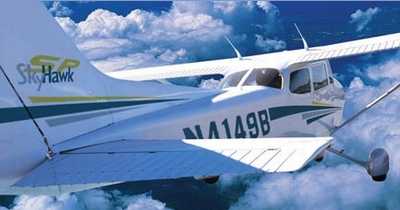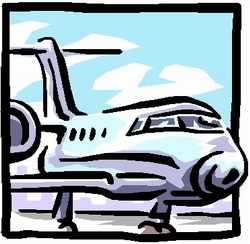Gov't Looking At Plan To Identify Operators, Passengers
In what may be perceived as the old "trial balloon" method of
seeing how the winds blow, Department of Homeland Security
personnel are crisscrossing the country, meeting with trade groups
and elected officials to gauge reaction to proposed changes for the
operators and passengers of and in millions of small planes
and recreational boats, the New York Times reported Saturday.

This comes as Homeland Security acknowledges that the US remains
vulnerable to terrorist attacks utilizing these vehicles that use
the skies and the waters as their modes of operation.
While the US spends billions on screening passengers and baggage
on commercial planes, as well as screening cargo containers, a
small private jet could be used for nefarious purposes, including
flying in a weapon or terrorists into the country.
The first new set of rules to be implemented, according to the
Times, will focus on small planes. Boarding of small private planes
without X-ray screening of passengers and baggage would continue to
be allowed.
 However, for the first
time passengers on corporate and fractionally-owned jets will be
required to submit themselves to terrorist-watch list checks,
particularly if they are coming into the US from overseas.
However, for the first
time passengers on corporate and fractionally-owned jets will be
required to submit themselves to terrorist-watch list checks,
particularly if they are coming into the US from overseas.
Those corporate and fractionally-owned jets would join small
planes flying as a charter in regard to these rules.
Another proposal would see GA airports having to conduct
security assessments and identifying vulnerabilities.
Additionally, planes parked at those airports may be required to
have ignition or propeller locks. This would apply to any GAA
airport, from those that boast one grass runway to those with air
traffic equal to that of some major city airports.
TSA Assistant Secretary Kip Hawley acknowledged that two goals
of the new initiative could provoke some protests: ensuring that
unauthorized pilots cannot gain access to small planes and that
officials know who is at the controls of a plane in flight.
A variety of alternatives are being looked at to meet those
goals, including requiring small planes to eventually obtain
equipment allowing authorities to know automatically the owner of
the plane and the pilot's identity.
 "We know which pilots own
which aircraft," Hawley (right) said. "The next step would be to
know who is on the runway in that aircraft."
"We know which pilots own
which aircraft," Hawley (right) said. "The next step would be to
know who is on the runway in that aircraft."
For many pilots, however, their small planes pose little threat.
And they are counting on their lobbying group, AOPA, to
aggressively represent and campaign to preserve their
liberties.
Got A Boat?
Owners of small boats will also be subject to plans to diminish
the terrorist threat that their own $100 hamburger rides pose,
although those plans are apt to be announced after those for small
planes.
Even though the Coast Guard plan is still under development,
boat owners are already raising their red flags, particularly
against plans that include passing a proficiency test and carrying
a form of government-issued identification.
"These are ill-conceived solutions that will inconvenience
everyone and not result in a substantial increase in security,"
said Michael G. Sciulla, senior vice president of the Boat Owners
Association of the United States, which is already organizing to
fight the proposals.
The right to captain a small boat with little interference by
the government is fiercely defended by organizations like the boat
owners association.
The proposed changes will be issued by the TSA and the Coast
Guard and the first set of rules will be announced by the end of
the summer.
Bumpy skies and seas seen ahead.
 NTSB Prelim: Lee Aviation LLC JA30 SuperStol
NTSB Prelim: Lee Aviation LLC JA30 SuperStol Classic Aero-TV: Curtiss Jenny Build Wows AirVenture Crowds
Classic Aero-TV: Curtiss Jenny Build Wows AirVenture Crowds ANN's Daily Aero-Term (05.30.25): Very High Frequency (VHF)
ANN's Daily Aero-Term (05.30.25): Very High Frequency (VHF) Aero-News: Quote of the Day (05.30.25)
Aero-News: Quote of the Day (05.30.25) Classic Aero-TV: Quest Kodiak Enhances Migration Monitoring Programs
Classic Aero-TV: Quest Kodiak Enhances Migration Monitoring Programs





